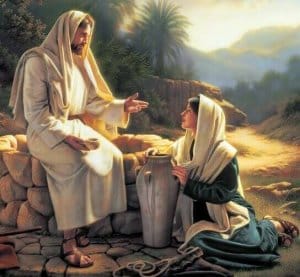J.D. Vance, venture capitalist and author of Hillbilly Elegy, speaks on the American Dream and our Civilizational Crisis....
Our Next Pope: “Orthodox” or “Progressive” — Why do we care?
Like many other Christians who also happen to be Catholic, my admiration for our last pontiff has not been lacking. Called to the Chair of Peter at a time when many humans have forgotten what the voice of Jesus sounds like and what his interior presence can do for them, Pope Benedict and his noble effort to re-evangelize Europeans by calling them back to the person of Christ have certainly borne good fruit.
I fondly recall a moment two years ago when, during our study-abroad program in Italy, a few of us students were lucky enough to glimpse Pope Benedict’s helicopter flying over our Due Santi campus as we temporarily paused our soccer festivities. Having read “Jesus of Nazareth” and “Deus Caritas Est”, two scholarly works which guided me to a more personal relationship with “God” from my heretofore theoretical relationship, I thought to myself: “wow, the man who helped to change my life is flying right over there.” We waved frantically in a desperate attempt to show our love for our pope, but I think this year’s group of UD students might’ve had a bit more luck at catching the pope’s attention.
But not everybody shares the same enthusiasm for a papacy such as Benedict’s, and if you watch nightly news coverage of the conclave, you’ll likely find that at least half of the interviewees will voice their desire that the next pope be more “progressive” or less “dogmatic”. Such pontifications tend to irk those of us who appreciate the timeless validity of Church Wisdom.
But when we “conservative” Catholics are tempted to respond to such “liberal” Catholics by obstinately ruminating on our own earnest desire for an “orthodox” pope, I think we need to ask ourselves…does it really matter whether our next pope is “orthodox”?
If that question initially sounds scandalous, let’s recall what Cardinal Ratzinger reminds us of in The Spirit of the Liturgy: the truly comprehensive and inclusive definition of the term “orthodox” refers not only to Church teaching about “God”, but more importantly, to the manner in which we personally encounter God.
And seeing as how a group of Benedictine monks have introduced a group of skeptical Englishmen (see 8:48) to the peaceful, meaningful, and liberating presence of the living person of Jesus Christ (see 3:30), can there be any doubt that such orthodoxy finds its ultimate incarnation in the individual hearts of individual men and women, rather than the annals of Church teaching?
If that is indeed the case, if it is indeed true that Jesus Christ desires to rejuvenate the hearts and minds of men and women

much more than he desires to dwell within a truthful set of dogmatic, academic, and theoretical statements,

then is our pre-occupation for an “orthodox” pope perhaps a reflection of our own refusal to embody that higher meaning of the term “orthodox”?
It seems that the monks of The Monastery and The Big Silence have shown us that with silence and prolonged attention, we can enable Christ to create within us that truest, highest, and most personal meaning of “orthodox.”
Which ought to make us wonder: if we do not incorporate daily silence, stillness, and calmness into our own lives, are we not actually causing confusion in non-Catholics as to the truly wonderful meaning of “orthodox Catholicism”? What a pitiful thing it would be if our religion were merely a religion of dogma and theory, rather than also being a religion of a living person.
But thankfully, orthodox Church teaching will always remind us of the true meaning of our religion. What peace and meaning would flood our lives if we, like the sick, crippled, and guilty of the New Testament, would let the personal power of Jesus Christ heal our minds and hearts with his silent, loving touch.

Then we could place the papal election in its proper context, and then we could rejoice in the fullness of life that the term “orthodox” is meant to refer to.
Get the Collegiate Experience You Hunger For
Your time at college is too important to get a shallow education in which viewpoints are shut out and rigorous discussion is shut down.
Explore intellectual conservatism
Join a vibrant community of students and scholars
Defend your principles
Join the ISI community. Membership is free.
